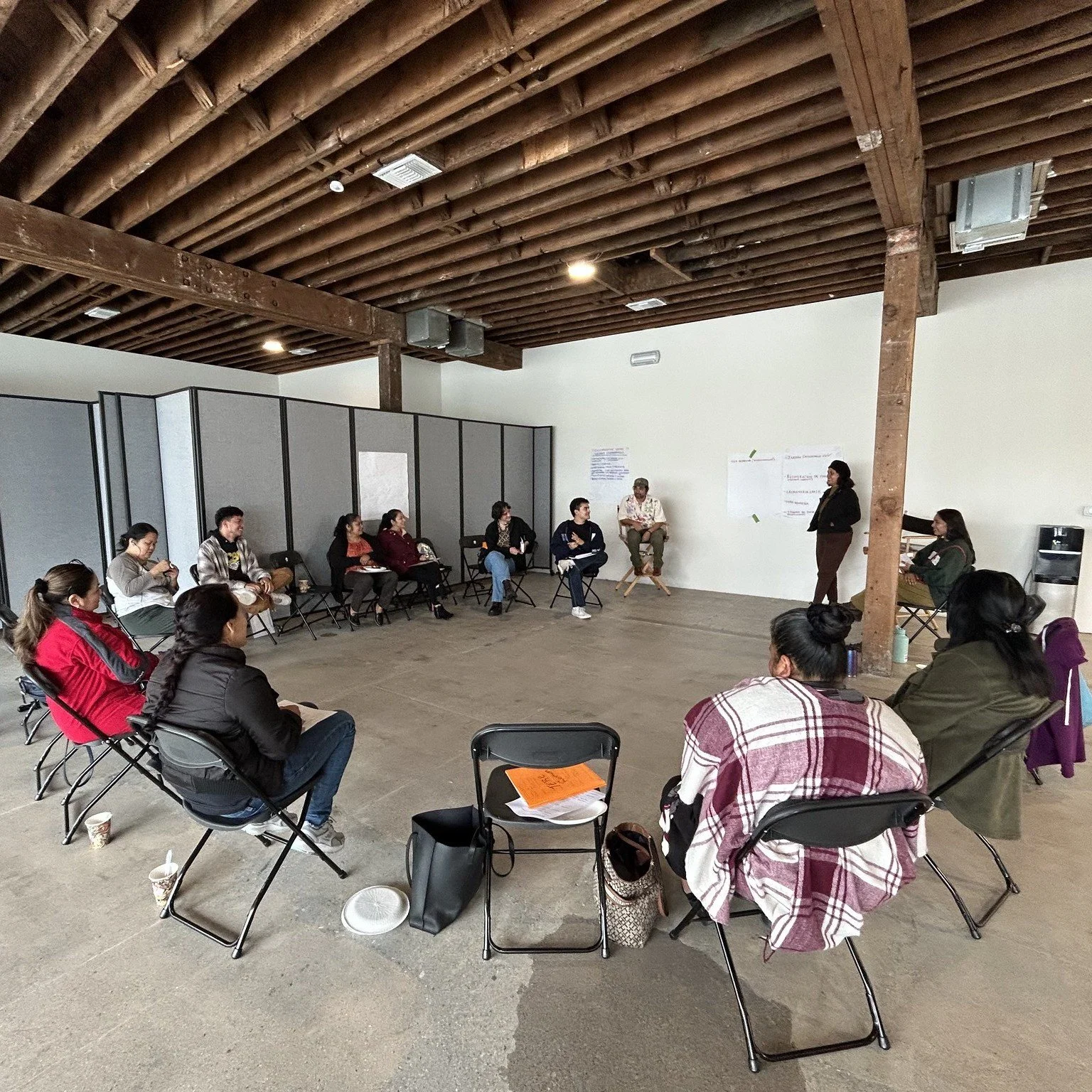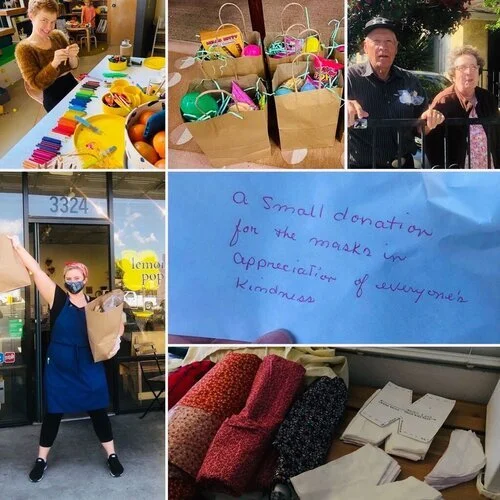Community Economies
Building community economies together
LA Más is dedicated to strengthening the local economy and ensuring working-class residents remain rooted in Northeast LA. We invite our allies and neighbors – members of our solidarity ecosystem – to join us in this mission. We invest in existing practices by providing resources and creating a hub where working class neighbors have options to grow their economic livelihoods.
Explore our core strategies
-
Our neighbors have incredible talents and services, many of which are home-based. Our inaugural annual NELA Comparte in 2023 evolved into a quarterly Mercado NELA Comparte in 2024 so that our community vendors were able to sell their goods. Given community demand for more opportunities, LA Más will be hosting weekly night markets in 2025, showcasing our local entrepreneurs. Please join us every Friday evening at Somos NELA from 6-9pm!
-
Our sharing economies model supports economic stability through resource-sharing practices that center collaboration and the collective. LA Más, through the NELA Food Justice Collaborative, is redirecting $70K from the LA County Food Equity Grant to seven grassroots organizations. This funding supports their volunteer operations and various other sharing economies, including bicycles, clothing, school supplies, and more.
Members of the NELA Food Justice Collaborative
Accion Comunitaria • For the People • Padres de Family Juntos Park • NELA Mercadito • Manos Que Sobreviven • Semillas en Lucha • Unidos por NELA
-
Our community hub is a space for sharing valuable resources. For example, we have collaborated with partners for free offerings such as legal advice, native plant knowledge, business services, and art activities. These events address immediate needs while contributing economic value through resource exchange.
Impact
Mutual aid collaboratives evolve into models that honor and sustain the labor of those serving their communities.
Communities gain knowledge of regenerative economic practices like participatory budgeting and collective decision-making.
Working-class communities of color meet their needs through both non-monetary exchanges and a growing ecosystem of local vendors and co-ops.
A self-sustaining local economy flourishes in Northeast LA.
Get Involved
-
Spend your money locally - support our NELA community vendors by coming to Somos NELA, our weekly night market, every Friday from 6-9PM. Grab dinner, buy gifts, and enjoy music. All vendors are from Northeast LA. Have questions, contact market@mas.la.
-
Help us shape our programs by attending these general meetings - give feedback on our weekly market, provide ideas on how we can better share resources and use our community hub. Next meeting is Tues, April 29th from 5:30-7:30pm. Questions, contact miguel@mas.la
-
Help out at a regular food distribution! View the food distribution volunteer list led by members of the NELA Food Justice Collaborative. Please reach out directly to support.
-
Our NELA community directory features a variety of local offerings from community entreprenuers—from home chefs creating dishes like pupusas and tacos dorados to artisans crafting jewelry, flowers, and furniture.






